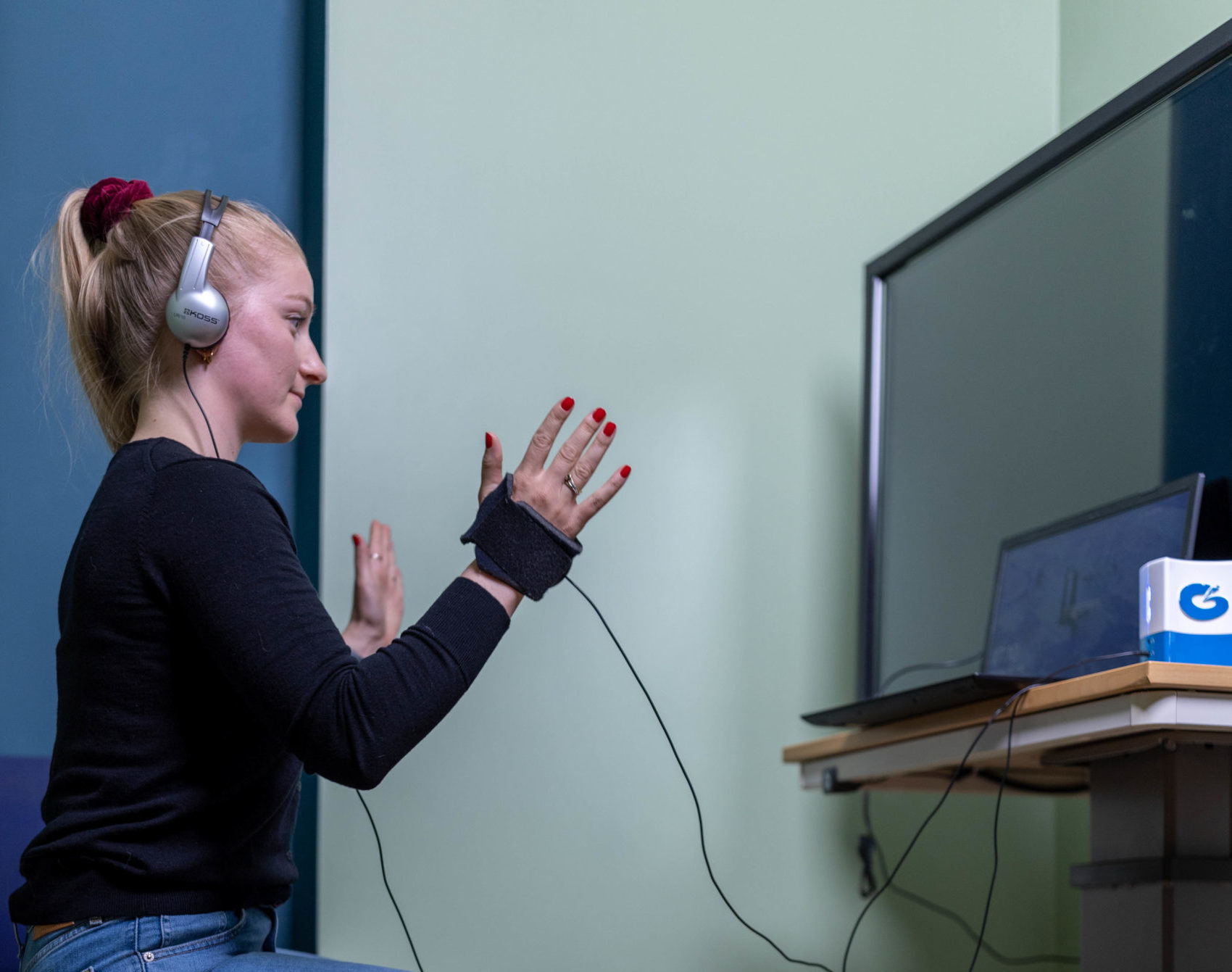Have you ever struggled with focus, movement coordination or learning difficulties? Then Interactive Metronome could be the solution you've been looking for. Interactive Metronome (IM) is a computer-based training program designed to improve concentration, coordination and motor skills in both children and adults. In this article, we'll take a closer look at what IM is, how it works and how it can help you improve your learning and cognitive function.
What is Interactive Metronome and how does it work?
Interactive Metronome is a computer program that uses repetition of sounds to train the brain to become more accurate. The patient performs different exercises while listening to a customized metronome sound through headphones. The program gives the patient feedback on how accurately they perform the exercises, and the difference between the participant's response and the actual metronome sound is measured in milliseconds.
By training the brain to be more accurate, positive changes in concentration, coordination and motor skills can be experienced. Further research also shows that Interactive Metronome can help patients with active primitive reflexes, which indicate an immaturity in the nervous system. The program can help develop good posture, voluntary muscle control and more advanced functions such as learning.
 How can the Interactive Metronome help improve concentration and coordination?
How can the Interactive Metronome help improve concentration and coordination?
Interactive Metronome is proven to help improve concentration and coordination by training the brain to be more accurate and efficient in sharing information. The program can also contribute to better language use and improved theoretical abilities in reading, writing and mathematics. You can read and write faster, with fewer errors, see connections and improve fluency.
Interactive Metronome can also help control aggression and impulsivity. This can be particularly important for people struggling with ADHD, autism or other neurological challenges. By training the brain to be more accurate, people can experience positive changes in concentration, coordination and motor skills, which can lead to better learning and a better quality of life.
What are primitive reflexes and how do they affect learning?
Primitive reflexes are automatic movements that are common in infants but normally disappear as the brain matures and develops voluntary muscle control. When these reflexes are active in adults, it can lead to difficulties with posture, coordination and learning. Interactive Metronome can help train the brain to control these reflexes and develop more advanced functions such as learning and motor skills.
 What positive changes can you expect from training with the Interactive Metronome?
What positive changes can you expect from training with the Interactive Metronome?
- Positive changes in concentration, coordination and motor skills can be experienced by training with the Interactive Metronome
- Interactive Metronome can help control primitive reflexes and develop more advanced functions such as learning and motor skills
- Primitive reflexes are automatic movements that normally disappear as the brain matures and develops voluntary muscle control
- Positive changes after training with the Interactive Metronome include increased focus, better language use and control of aggression and impulsivity.
How do you get started with Interactive Metronome training?
We offer IM as a treatment option here at the clinic. You can contact us to arrange a consultation and find out if Interactive Metronome is right for you. If we see the need for IM, we will set up a training program for you based on your problem. Contact us today to get started with your personalized Interactive Metronome training.
Research:
Research has shown that the Interactive Metronome can have positive effects on concentration, coordination and motor skills in both children and adults. A study published in the journal Frontiers in Human Neuroscience found that participants who trained with the Interactive Metronome for 30 minutes daily for 5 weeks experienced a significant increase in both attention and motor accuracy.
Another study published in the Journal of Attention Disorders found that children with ADHD who trained with the Interactive Metronome for 15 minutes daily for 5 weeks showed significant improvements in ADHD symptoms, including impulsivity and hyperactivity.
Shaffer, R. J., Jacokes, L. E., Cassily, J. F., Greenspan, S. I., Tuchman, R. F., & Stemmer, P. J. (2001). Effect of interactive metronome training on children with ADHD. American Journal of Occupational Therapy, 55(2), 155-162.
Rubinstein, R., & Reiner, M. (2012). The Effectiveness of the Interactive Metronome in Improving Cognitive and Motor Abilities. International Journal of Therapy and Rehabilitation, 19(1), 26-34.
Stambaugh, I., & Greenhoot, A. F. (2015). The Effectiveness of Interactive Metronome® Therapy for Children with ADHD: A Pilot Study. Journal of Occupational Therapy, Schools, & Early Intervention, 8(3), 247-261.
Baggett, K. M., Brown, L., & Williamson, P. (2017). Effectiveness of the interactive metronome® as a therapeutic tool for children with attention deficit hyperactivity disorder. Journal of Occupational Therapy, Schools, & Early Intervention, 10(2), 131-144.
Bartscherer, M. L., Ozelie, R., & Malek, M. (2019). Effects of Interactive Metronome on Cognitive and Motor Outcomes in Individuals with Autism Spectrum Disorder. Journal of Autism and Developmental Disorders, 49(11), 4489-4499.



 How can the Interactive Metronome help improve concentration and coordination?
How can the Interactive Metronome help improve concentration and coordination?